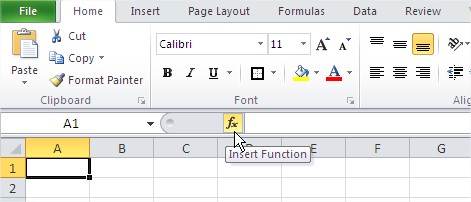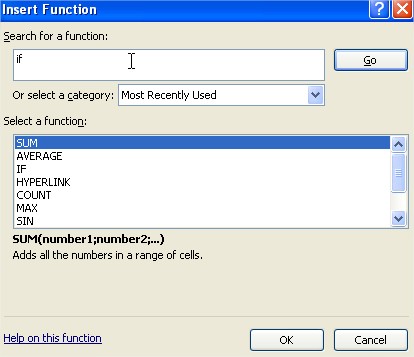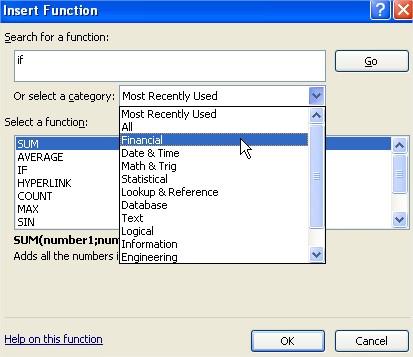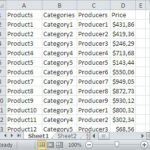Excel Functions for Beginners: A Guide to Getting Started
Excel functions are built-in formulas in Microsoft Excel that help perform quick and accurate calculations, even for complex data analysis.
To enter a function, first select the cell where you want the result of the calculation to appear.
Insert function
To insert a function in Excel, click the Insert Function icon.

In the Excel function search box, type the function name or a keyword describing its purpose (e.g., “sum”, “average”). When you click on the name of a function, a description of the function appears. This description can help you understand what the function does.

Functions categories
You can also browse function categories such as Financial, Logical, and Text functions to find the one that fits your task in Excel.

Clicking on the name of the function in the window Select a function under the list of names we see a description of the function. In many cases, this description allows us to understand, for what that function is.
The Function Arguments dialog box appears after you select a function.
In the first pane, type the cell addresses that you want to include in the function. Below the cell addresses, you see the current result of the function. If the function has a description, it is displayed below the result. The description also explains what the function does with each argument.

These are the basic steps for using Excel functions. You can explore more Excel function tutorials and examples on this site.



Leave a Reply